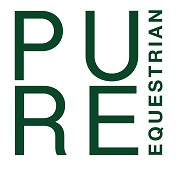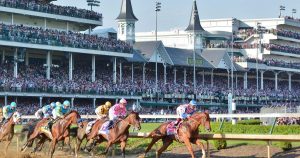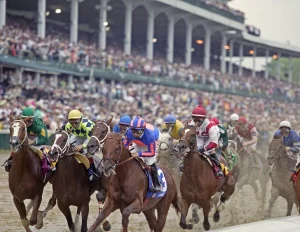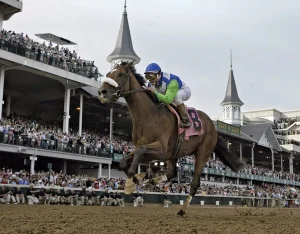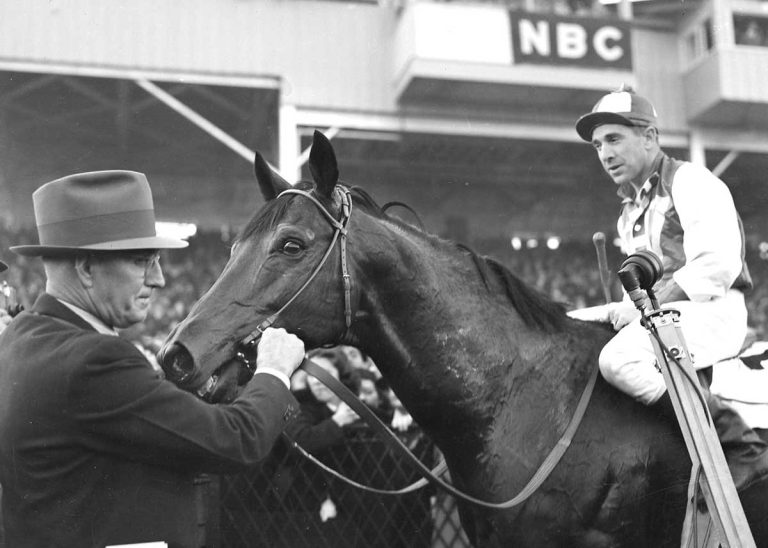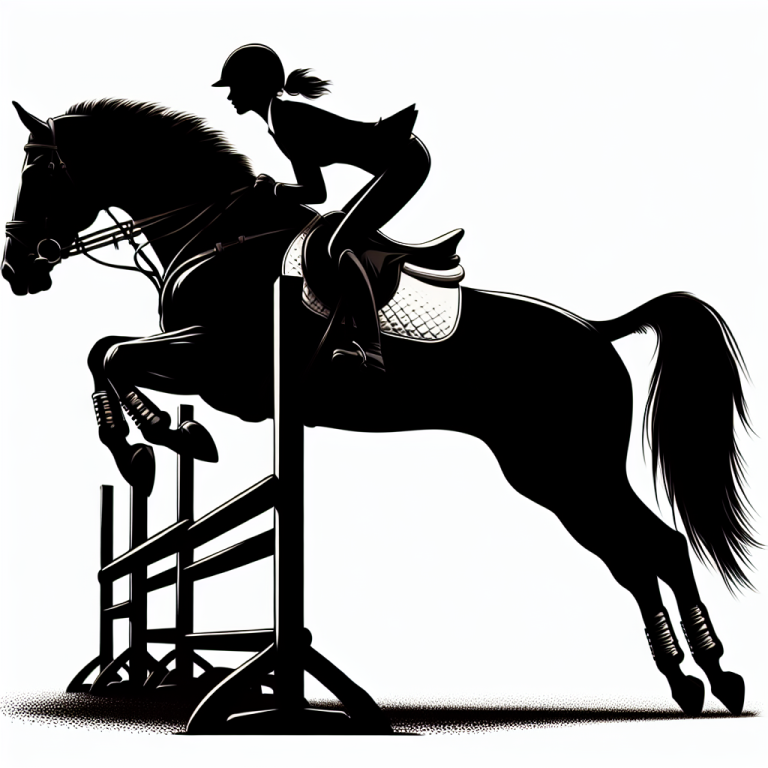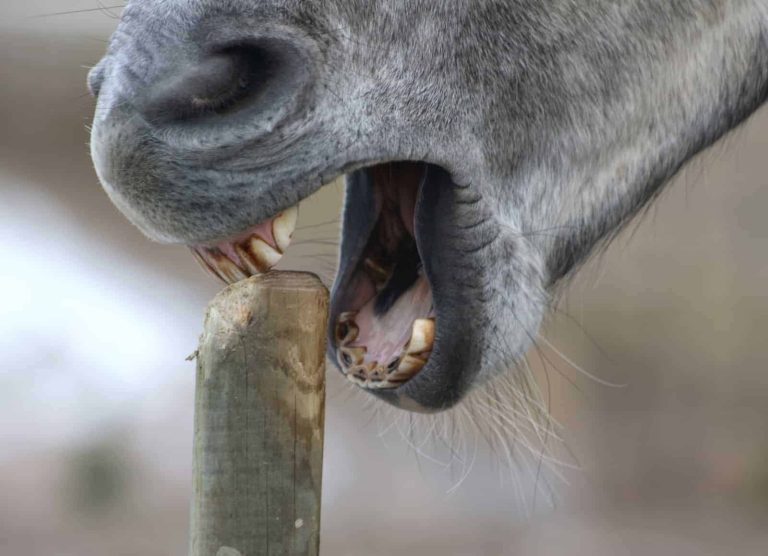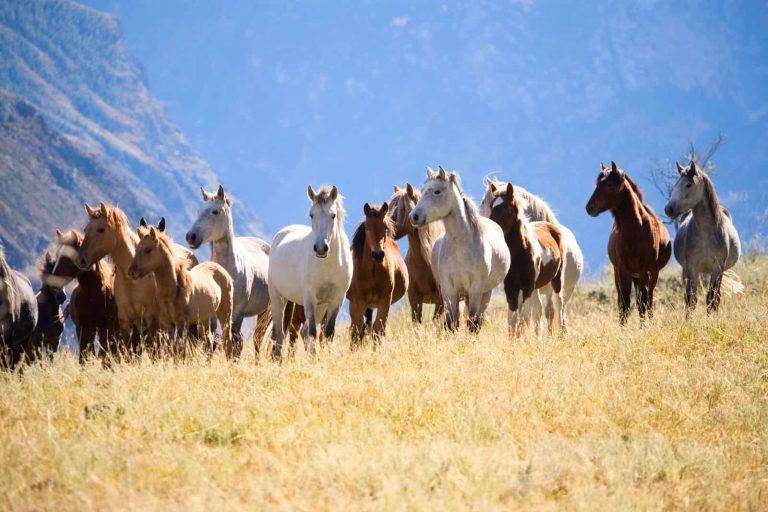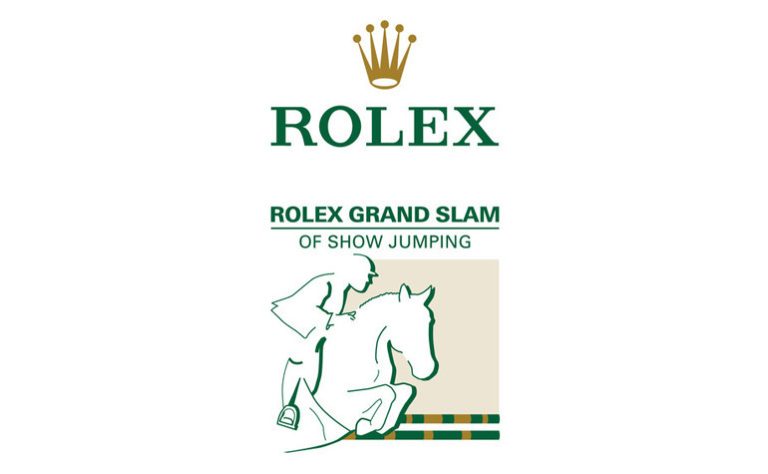When it comes to horse racing, one event stands out as the epitome of excitement, history, and tradition: the Kentucky Derby. This iconic race, held annually at Churchill Downs in Louisville, Kentucky, captivates audiences worldwide. Known as “The Most Exciting Two Minutes in Sports,” the Kentucky Derby holds immense significance in the horse racing industry and has become a symbol of excellence and prestige. With its rich history, thrilling competition, and iconic traditions, the Kentucky Derby continues to shape the world of horse racing.
Table of Contents
ToggleHistory of the Kentucky Derby
The Kentucky Derby is a historic and prestigious horse racing event that has been captivating audiences for over a century. It was first established in 1875 by Colonel Meriwether Lewis Clark Jr., who was inspired by the Epsom Derby in England. Clark wanted to create a similar race in the United States and decided that Churchill Downs in Louisville, Kentucky, would be the perfect location. From its inception, the Kentucky Derby has been deeply rooted in tradition and has become an iconic event in American sports.
Establishment of the Race
The Kentucky Derby was born out of a desire to bring the excitement of horse racing to the United States. Colonel Clark envisioned a race that would showcase the best of American Thoroughbred racing and provide a platform for owners, trainers, and jockeys to compete on a national stage. With his vision and determination, Clark was able to establish the Kentucky Derby as the premier horse racing event in America.
Derby as the First Leg of the Triple Crown
One of the key factors that contribute to the significance of the Kentucky Derby is its role as the first leg of the Triple Crown. The Triple Crown is a coveted achievement in horse racing, consisting of three races: the Kentucky Derby, the Preakness Stakes, and the Belmont Stakes. Winning all three races in a single year is considered one of the greatest accomplishments in the sport. The Kentucky Derby sets the stage for the Triple Crown pursuit and creates a sense of anticipation and excitement for horse racing enthusiasts worldwide.
Popularity and Prestige
The Kentucky Derby is often referred to as the “Most Exciting Two Minutes in Sports,” and for good reason. The race is known for its thrilling and fast-paced nature, as the horses sprint across the track to the finish line. Millions of viewers tune in each year to watch the race, making it one of the most-watched sporting events in the world. The prestige that comes with winning the Kentucky Derby is unparalleled, as it cements a horse’s place in racing history. For owners, trainers, and jockeys, a victory at the Kentucky Derby is a dream come true and a mark of excellence in their respective fields.
Known as the ‘Most Exciting Two Minutes in Sports’
The Kentucky Derby has earned its reputation as the “Most Exciting Two Minutes in Sports” due to the intense and thrilling nature of the race. From the moment the gates open and the horses charge towards the finish line, the tension and excitement in the air are palpable. In just two minutes, the fate of the horses and the dreams of their connections are decided, creating a truly exhilarating experience for spectators.
Coveted Title for Owners, Trainers, and Jockeys
Winning the Kentucky Derby is not only a matter of prestige but also a significant achievement in the careers of owners, trainers, and jockeys. The race attracts the best horses from around the country and provides an opportunity for connections to showcase their skills and expertise. For owners, a Kentucky Derby victory adds immense value to their bloodstock and can lead to lucrative stud deals. Trainers are praised for their ability to condition horses to peak performance on the big day, while jockeys’ skillful riding can make the crucial difference between victory and defeat.
International Attention
The allure of the Kentucky Derby extends far beyond American borders, capturing the fascination of a global audience. Horses from various countries, such as Japan, Ireland, and England, travel to compete in the race, showcasing the international reach of the event. The Kentucky Derby serves as a platform for connections from around the world to test their skills and compete against the best in American racing. This international participation adds another layer of excitement and anticipation to the event, making it a truly global spectacle.
Attracts Horses and Participants from Around the World
The Kentucky Derby’s international appeal is evident in the diverse field of horses and participants it attracts. The race has seen horses from renowned international racing nations, such as Japan and Ireland, compete against American contenders. Trainers and jockeys from different parts of the world also make their way to Churchill Downs, adding a unique dynamic to the race. This convergence of talent and expertise from around the world further solidifies the Kentucky Derby’s status as a prestigious and globally recognised event.
Traditions and Iconic Elements
The Kentucky Derby is steeped in traditions that have become integral to the event’s identity. One such tradition is the official drink of the Kentucky Derby: the Mint Julep. This refreshing cocktail, made with bourbon, mint, sugar, and crushed ice, has become synonymous with the race and is enjoyed by spectators as they cheer on their favourite horses. Another iconic element of the Kentucky Derby is the Garland of Roses, which is awarded to the winning horse. This symbol of victory has been presented to the Derby winner since 1896 and represents the pinnacle of success in the race. The trophy, a beautiful silver cup, is also a cherished symbol of achievement and serves as a reminder of the rich history of the event.
Mint Julep as the Official Drink
The Mint Julep has become an inseparable part of the Kentucky Derby experience. At Churchill Downs, spectators indulge in this refreshing bourbon-based cocktail as they watch the race unfold. The tradition of serving Mint Juleps at the Derby dates back to the early years of the race and has since become an enduring symbol of the event. The combination of the smooth, sweet bourbon and the aromatic freshness of mint creates a perfect blend that perfectly captures the spirit of the Kentucky Derby.
Garland of Roses and Trophy
The Garland of Roses, presented to the winner of the Kentucky Derby, holds immense significance in the annals of the race’s history. This beautiful arrangement of red roses serves as a symbol of victory and is draped over the winning horse’s shoulders in the winner’s circle. The tradition was established in 1896 when Ben Brush was honored with the first Garland of Roses. The trophy, a silver cup that has graced the hands of countless champions, is a cherished symbol of achievement and represents the hard work and dedication required to win the Kentucky Derby.
Economic Impact
The Kentucky Derby’s impact extends beyond the realm of racing, making a significant contribution to the local economy. The event attracts thousands of visitors to Louisville, Kentucky, each year, leading to a boost in tourism and hospitality industries. Hotels, restaurants, and local businesses benefit from the influx of visitors who come to experience the excitement of the Derby. Additionally, the race generates employment opportunities, providing jobs for event staff, security personnel, and various service providers. The economic impact of the Kentucky Derby serves as a testament to the enduring popularity and significance of the event.
Boost to Local Economy
The Kentucky Derby injects a substantial amount of revenue into the local economy, making it a vital event for the city of Louisville. With thousands of visitors flocking to the city for the race, hotels and restaurants in the area experience a surge in bookings and reservations. Local businesses, such as souvenir shops and boutiques, also benefit from the increased foot traffic. The Derby provides a much-needed boost to the tourism and hospitality industries, supporting the livelihoods of many individuals in the community.
Participation and Investment from Various Stakeholders
The economic impact of the Kentucky Derby is not limited to the local economy alone. The race attracts sponsorship deals, broadcasting rights, and investments from various stakeholders in the horse racing industry. Companies and brands recognize the value of associating themselves with such a renowned and widely watched event, leading to financial support and partnerships. This influx of capital further strengthens the financial stability of the race and allows for continued growth and development in the industry.
Social and Cultural Relevance
The Kentucky Derby is more than just a horse race; it is a cherished cultural event that holds a special place in American society. The race generates excitement and anticipation among spectators, who eagerly await the chance to witness sporting history unfold before their eyes. The Derby serves as a platform for special events and celebrations, such as parties and galas, that bring communities together in the spirit of camaraderie and fun. Additionally, fashion and hats have become a celebrated part of the event, with attendees showcasing their unique style and creativity. The Kentucky Derby has become a cultural touchstone, representing the best of American sports, fashion, and entertainment.
Generates Excitement and Special Events
The Kentucky Derby generates a palpable sense of excitement and anticipation among both attendees and viewers around the world. The race is not just a sporting event; it is a spectacle that captivates the imaginations of millions. The weeks leading up to the Derby are filled with special events and parties, offering attendees a chance to immerse themselves in the festive atmosphere. From fireworks displays to live music performances, the Kentucky Derby has something for everyone, ensuring that the excitement continues long after the race has been run.
Fashion and Hats as a Celebrated Part of the Event
One of the most iconic aspects of the Kentucky Derby is the fashion and hats that attendees proudly showcase. The Derby has become synonymous with elegant outfits, vibrant colours, and, of course, extravagant hats. Spectators put in tremendous effort to dress in their finest attire, with women often sporting elaborate hats adorned with feathers, flowers, and bows. This tradition of fashion and hats adds an element of style and flair to the event, creating a visually stunning experience for both onlookers and participants.
Role of Breeding and Bloodlines
The Kentucky Derby plays a pivotal role in the breeding and bloodlines of Thoroughbred horses. A victory at the Derby elevates a horse’s breeding stock value and attracts lucrative stud deals. The bloodlines of Derby winners often become highly sought after, as breeders aim to incorporate the winning pedigree into their programmes. The success of a horse at the Kentucky Derby not only solidifies its own place in history but also has a lasting impact on future generations of racehorses.
Influence of Winning the Kentucky Derby on Breeding Programmes
The Kentucky Derby has a profound influence on breeding programmes, as owners and breeders strive to produce horses capable of winning the prestigious race. The bloodlines of successful Derby winners, such as Secretariat and American Pharoah, are carefully preserved and utilised in breeding programmes around the world. By analysing the pedigrees and performance of past Derby winners, breeders can identify the key factors that contribute to success on the racetrack. The impact of winning the Kentucky Derby extends far beyond the race itself, shaping the future of the Thoroughbred breeding industry.
Identification of Future Champions
The Kentucky Derby serves as a platform for identifying future champions in the world of horse racing. Many horses that compete in the Derby go on to have successful careers, competing in other prestigious races and achieving great accomplishments. The race acts as a proving ground, showcasing the talent and potential of young Thoroughbreds. A victory at the Kentucky Derby often positions a horse as a frontrunner for future success, and connections closely monitor the performances of Derby contenders to identify potential champions.
Jockey Tactics and Strategies
In the Kentucky Derby, the jockey’s decisions and strategies play a crucial role in the outcome of the race. With 20 horses charging towards the finish line, jockeys must make split-second decisions to position themselves for success. A jockey’s ability to navigate the crowded field, find the right horse to follow, and choose the right time to make a move can greatly influence the race’s outcome. The Kentucky Derby puts jockeys’ skills and instincts to the test and showcases their strategic prowess on one of the biggest stages in racing.
Importance of Jockey’s Decisions During the Race
The Kentucky Derby is often referred to as a jockey’s race, highlighting the significance of their decisions during the event. Jockeys must carefully analyse the race dynamics, assess the speed of their competitors, and make strategic moves to secure favorable positions. The ability to find clear racing lanes, avoid traffic, and judge the right time to make a move can be the difference between victory and defeat. The weight of responsibility on the jockey’s shoulders is immense, as they must make split-second decisions that can shape the outcome of the race.
Influence on Race Outcome
The tactical decisions and strategies employed by jockeys in the Kentucky Derby have a direct impact on the race’s outcome. A well-timed move or a well-judged ride can propel a horse to victory, while a miscalculation or poor decision can lead to disappointment. Spectators eagerly watch as jockeys navigate their way through the field, showcasing their skill and expertise. The Kentucky Derby serves as a platform to appreciate the talent of these jockeys and recognize the vital role they play in the sport of horse racing.
Derby Controversies and Memorable Moments
Over its long and storied history, the Kentucky Derby has witnessed its fair share of controversies and memorable moments. Disqualifications and appeals have ruffled feathers, creating debates and discussions among racing enthusiasts. The controversial disqualification of Maximum Security in 2019, for example, sparked intense controversy and became a major talking point in the racing community. Additionally, the Derby has seen legendary horses such as Secretariat and Citation, who set records and established themselves as all-time greats. Unlikely upsets have also occurred, shocking fans and etching the moments into racing history.
Disqualifications and Appeals
The Kentucky Derby has not been immune to controversial decisions and disqualifications. In 2019, Maximum Security crossed the finish line first but was subsequently disqualified for interference, which led to Country House being declared the winner. This decision sparked intense debates and appeals, highlighting the nuanced nature of stewarding and the subjective judgments that can impact the outcome of the race. Such controversies add intrigue and drama to the Kentucky Derby, ensuring that it remains a topic of conversation long after the race is run.
Legendary Horses, Records, and Upsets
The Kentucky Derby has been the stage for countless legendary horses, remarkable records, and breathtaking upsets. Horses like Secretariat, who set a track record that still stands, and Citation, who achieved immortality by winning the Triple Crown, have become synonymous with greatness in the sport. Additionally, the Derby has seen unexpected upsets, such as Mine That Bird’s stunning victory in 2009 at odds of 50-1. These moments of triumph, records, and upsets have solidified the Kentucky Derby’s reputation as an event that consistently delivers unforgettable moments in racing history.
Impact on Horse Racing Industry
The Kentucky Derby’s significance extends beyond the confines of a single race; it has a profound impact on the horse racing industry as a whole. The race generates increased interest and participation in horse racing, drawing new fans into the sport. The excitement surrounding the Kentucky Derby spills over to other races in the Triple Crown series and other major events, fueling enthusiasm and engagement. Additionally, the Kentucky Derby’s popularity has a direct impact on betting and wagering, with millions of dollars being wagered on the race each year. The Kentucky Derby’s influence on the racing industry is undeniable and has shaped the sport for generations.
Increased Interest and Participation in Horse Racing
The Kentucky Derby serves as a gateway into the world of horse racing for many individuals. The race’s widespread popularity captures the attention of casual sports fans, who are drawn to the excitement and spectacle of the event. This increased interest leads to greater participation in the sport, with more individuals attending races, wagering on horses, and becoming fans. The Kentucky Derby acts as a catalyst, creating a ripple effect that promotes further engagement in horse racing and ensures its enduring appeal.
Impact on Betting and Wagering
The Kentucky Derby is one of the biggest betting events in the world, with millions of dollars being wagered on the race each year. The allure of picking the winning horse and the potential for substantial payouts create excitement among both seasoned bettors and casual gamblers. The race’s popularity and the sheer number of participants result in significant betting activity, driving revenues for the horse racing industry. The Kentucky Derby’s impact on betting and wagering cannot be overstated, as it plays a crucial role in the financial viability of the sport.
